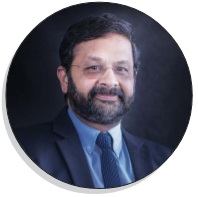Employee recognition is vital for a company's success since it motivates employees to deliver, thereby enhancing the productivity of the company. Organisations have embarked on a Total Rewards approach to recognise performers that include monetary and non-monetary rewards, and this could include personal growth opportunities as well.
Companies are working to bolster employee engagement and retention by developing a strong Employee Value Proposition that demonstrates a dynamic relationship between the company and its employees. This is done to articulate their approach through annual total rewards statements, detailing rewards already received by the employee and those anticipated in the future. This determines Employee Value Proposition and drives organisations to place a monetary value to their rewards to evaluate the Return on Investment.
Some of the standard practices for formal Rewards and Recognition are:
◆ Base Pay: To help signal recognition of hot skills/ tenure and loyalty and other factors by determining the pay levels vis-à-vis internal and external benchmarks.
◆ Salary Increments: Consists of merit increases and market corrections. Merit increases are linked to employee performance and salary levels. Market corrections may be given to employees with below market salaries based on tenure, performance, hot skills and comparatio/range penetration criteria. This process helps drive internal and external equities. In many developing markets such as India, salary increments are essential to provide real increase in compensation levels vis-à-vis increases in cost of living.
◆ Short term performance-linked pay: This is a core component for recognising and differentiating high performers. Typically paid on a quarterly/half yearly/annual cycle, performance-linked Pay is the direct link between organisational and individual performance, and therefore provides the highest RoI among all the elements of Rewards.
◆ Long term incentives: This is typically in the form of deferred cash or stock options, Restricted Stock Units etc. Such a rewards mechanism is especially popular among startups and listed companies.
◆ Recognition schemes: For top performing individuals and teams at different intervals these can be Spot Awards, Gift Vouchers, and similar awards for individual and team contributions. As organisations collaborate to drive projects and achieve key business outcomes, a trend of higher recognition of crossfunctional teams gains prominence.
◆ Service Awards: A loyalty recognition to long-serving employees
◆ Job Promotions/High-value training programmes: Through these learning and career development opportunities, organisations recognise talented employees and build a talent pipeline for the future
Role of recognition in driving values
Values-driven recognition is a major trend amongst large and medium sized organisations. The emphasis is on recognising employees and teams who have contributed towards developing an organisational culture and lived up to the company's values. Peer acknowledgement through spot recognition or appreciation messages go a long way in ensuring recognition which is crucial for the millennial workforce.
Rewarding employees during employee forums and town halls will make a huge impact as it will motivate others to perform. Internal display boards, intranet portals, or any social media platforms can be used to call out achievers. Forums for interacting with the leadership team and celebrating organisational milestones through events and get togethers will prove to be ideal platforms to recognise individuals and bolster workforce morale.
Organisations are going digital and drive various recognition efforts with a wide variety of rewards for employees. Rewards and Recognition approaches will be therefore be tailor-made to cater to employee needs.

Has COVID-19 forever changed the way we live and work?
Trending
-
SBI General Insurance Launches Digital Health Campaign
-
CredR Rolls Out 'Life Happens' Leave For Its Employees
-
Meesho Announces 30-Week Gender-Neutral Parental Leave Policy
-
Microsoft Unveils Tech Resilience Curriculum To Foster An Inclusive Future
-
60% Indian Professionals Looking For Job Change Due To COVID: Survey
-
SpringPeople And Siemens Collaborate For Digital Transformation Push
-
86% Professionals Believe Hybrid Work Is Essential For Work Life Balance: Report
-
Almost 1 In Every 3 People's Personal Life Affected Due To Work Stress
-
Meesho Rolls Out Reset And Recharge Policy For Employees
-
80% Of Talent Leaders & Academics Say Pandemic Changed Skill Needs For Youth: Report
-
Hero Electric Rolls Out 'Hero Care' Program For Employees
-
Human Capital In Collaboration With ASSOCHAM Hosts Virtual Conference
-
IKEA India, Tata STRIVE Collaborate To Create Employability And Entrepreneurship Opportunities
-
SAP India, Microsoft Launch Tech Skilling Program for Young Women
-
DXC Technology, NASSCOM Collaborate For Employability Skills Program
-
Lenskart To Hire Over 2000 Employees Across India By 2022
-
Mindtree Launches Learn-and-Earn Program
-
Tata AIA Extends 'Raksha Ka Teeka' To Its Employees
-
Swadesh Behera Is The New CPO Of Titan
-
NetConnect Global Plans To Recruit 5000 Tech Professionals In India
-
Hubhopper Plans To Hire 60% Of Indian Podcasters By 2022
-
Corporate India Needs More Women In Leadership Roles: Report
-
Aon to Invest $30 Million and Create 10,000 Apprenticeships by 2030
-
Tech Mahindra Launches ‘Gift a Career’ Initiative for Upskilling of Youth
-
40% Women Prefer Flexible Working Options in Post-COVID World: Survey
-
3 out of 4 companies believe they can effectively hire employees virtually: Report
-
Vodafone , CGI and NASSCOM Foundation launch digital skills platform
-
Odisha: Bank, postal employees to deliver cash for elderly, differently-abled persons
-
Skill India launches AI-based digital platform for "Skilled Workforce"
-
Hiring activity declines 6.73% in first quarter: Survey
-
70% startups impacted by COVID-19 pandemic
-
Bajaj Allianz Life ropes in Santanu Banerjee as CHRO
-
Over 70 Percent MSMEs look at cutting jobs to sustain businesses
-
93 Per Cent employees stressed about returning to office post-lockdown
-
Johnson & Johnson India announces family benefits for same gender partners
-
Indian firms turning friendly towards working mothers
-
Welspun India names Rajendra Mehta as new CHRO
-
Wipro partners with NASSCOM to launch Future Skills platform



Human Capital is niche media organisation for HR and Corporate. Our aim is to create an outstanding user experience for all our clients, readers, employers and employees through inspiring, industry-leading content pieces in the form of case studies, analysis, expert reports, authored articles and blogs. We cover topics such as talent acquisition, learning and development, diversity and inclusion, leadership, compensation, recruitment and many more.
Subscribe Now









































Comment